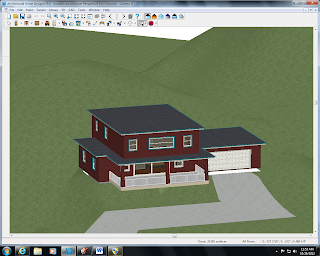Thursday, December 13, 2012
Wednesday, December 12, 2012
famous buildings portfolio post #3
1. my favorite style of buildings are centers of power i like these for many reasons.
3. i would like to see the tower of london mainly because englands history and style of doing things is very intresting to me, this building falls under the castles, palaces, and forts category.
- they have large interesting features such as domes and bridges
- they are bold literly show the power they hold
- there very important to the contry there in
3. i would like to see the tower of london mainly because englands history and style of doing things is very intresting to me, this building falls under the castles, palaces, and forts category.
Thursday, December 6, 2012
places of worship
places of worship- a building or other location where a groupo of people (congregation) comes to perform acts of religious prayer, honor, or devotion.

- Designed principally by: Donato Bramante, Michelangelo, Carlo Maderno and Gian Lorenzo Bernini
- Dedicated to saint peter a christian murdered on the land.
- materials used: pantellic marble
- made as a monument for athena

- location: jerusalem
- Judaism regards the Temple Mount as the place where God chose the Divine Presence to rest
- many Jews will not walk on the Mount itself, to avoid unintentionally entering the area where the Holy of Holies stood
- location: the capital of Makkah Province in Saudi Arabia
- As the birthplace of Muhammad and a site of the revelation of the Quran
- Muhammad was born in Mecca in 570
Monday, December 3, 2012
client project #2
the client we worked with only required a few things
- the house can not exceed 1500 sq. ft.
- we had to fit a baby grand piano into the floor plan
- a living room with book shelves
- a green house
- a sewing room
- a study/office
- and must accommodate a growing family
- and must have outdoor living space
Wednesday, October 3, 2012
architectural style- modern architecture
Modern architecture
Modern architecture is generally characterized by
simplification of form and creation of ornament from the structure and theme of
the building. It is a term applied to an overarching movement, with its exact
definition and scope varying widely. In a broader sense, early modern
architecture began at the turn of the 20th century with efforts to reconcile
the principles underlying architectural design with rapid technological
advancement and the modernization of society. It would take the form of
numerous movements, schools of design, and architectural styles, some in
tension with one another, and often equally defying such classification.
The concept of modernism would be a central theme in these
efforts. Gaining popularity after the Second World War, architectural modernism
was adopted by many influential architects and architectural educators, and
continues as a dominant architectural style for institutional and corporate
buildings into the 21st century. Modernism eventually generated reactions, most
notably Postmodernism which sought to preserve pre-modern elements, while
Neomodernism emerged as a reaction to Postmodernism.
Notable architects important to the history and development
of the modernist movement include Frank Lloyd Wright, Ludwig Mies van der Rohe,
Walter Gropius, Le Corbusier, Oscar Niemeyer and Alvar Aalto.
Characteristics
The Salk Institute
complex in La Jolla, California, by architect Louis Kahn.
Common themes of modern architecture include:
the notion that
"Form follows function", a dictum originally expressed by Frank Lloyd
Wright's early mentor Louis Sullivan, meaning that the result of design should
derive directly from its purpose
simplicity and
clarity of forms and elimination of "unnecessary detail"
visual expression of
structure (as opposed to the hiding of structural elements)
the related concept
of "Truth to materials", meaning that the true nature or natural
appearance of a material ought to be seen rather than concealed or altered to
represent something else
use of
industrially-produced materials; adoption of the machine aesthetic
particularly in
International Style modernism, a visual emphasis on horizontal and vertical
lines
Thursday, September 6, 2012
Welcome!
Hi! My name is David Gedman and I will be using this blog as a portfolio for my Advanced Architectural Design class, i will be posting my projects and examples along with a brief description of what i did. please check back to see my work!
Subscribe to:
Comments (Atom)













